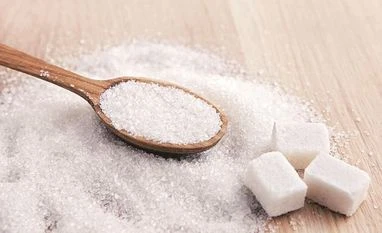It is ironical that the government is trying to bring in the sugar cess, which it abolished just a year ago, to make the transition to the new indirect tax regime.
Also, experts say the Goods and Services Tax (GST) Council has the powers to impose a cess other than those meant for compensating states under the new tax system only when there is a natural disaster.
In June last year, the government did away with the Sugar Cess Act, 1982. The Act was abolished, along with 12 other kinds of cess, on July 1, 2017, when the GST was introduced.
Now, a committee headed by Assam Finance Minister Himanta Biswa Sarma is looking at levying a sugar cess at Rs 3 a kg, which divided the GST Council last week.
Experts say such a move would contrast with what the government had stated in its press statement in June last year.
The government had stated that through the three Budgets — 2015-16, 2016-17, and 2017-18 — it had abolished various kinds of cess on goods and services to prepare the ground for the GST.
“The central government has taken this step in stages by abolishing various kinds of cess so that it is easier to fit in various goods and services in different tax slabs for the GST,” it had stated.
The statement went on to say that the remaining 13 varieties of cess would also be abolished with effect from July 1, 2017.
The Sugar Cess Act, 1982, was amended in 2016 to raise the amount of cess from Rs 25 a quintal to Rs 200 a quintal.
The aim was to increase the accruals to the Sugar Development Fund (SDF). Then too, the objective was to help sugarcane growers.
This time the cost of producing sugar has risen beyond Rs 35 per kg and the market price is between Rs 26 and Rs 28 per kg.
“Sugarcane farmers are in deep distress,” Finance Minister Arun Jaitley had said.
As far as the constitutional validity of the move is concerned, Article 279 A (4f) of the Constitution Amendment Act empowers the Council to impose any special rate or rates for a specified period to raise additional resources during any “natural calamity or disaster”.
“Any such move has to be linked to natural calamity or disaster. The government will have to face the constitutional bar and amend it if it decides to impose the sugar cess,” Abhishek Rastogi, partner with Khaitan & Company, said.
He said though addressing farmers’ distress was laudable, it should not be through a cess.
Abhishek Jain, partner with EY India, said though the Council had the powers to levy a cess, doing so might not be a good idea as it would mean bringing in a new law and increase in compliances and input credit issues.
“Further, it may open the floodgates for cess on many more commodities, which will distort the GST,” he said.
M S Mani, partner Deloitte India, said the GST was intended to get rid of multiple taxes and varieties of cess.
“Encouraging the cess could open the floodgates for similar kinds of cess for other industries in future. There could be demand for a rubber cess, a jute cess, a tea cess in future which would lead to multiple indirect tax levies again,” he said.
Kerala Finance Minister Thomas Isaac had stated he would agree to the cess if there was a similar one for rubber. He has been made a member of the committee looking into the issue of sugar cess.
Currently, only the compensation cess is within the purview of the GST system through a separate Act. It is levied on some ‘luxury and demerit’ items in the 28 per cent GST slab to compensate states for any revenue shortfall due to the GST in the first five years.
TAXING TIMES
Through Taxation Laws Amendment Act 2017, 13 cesses are abolished. However, the date of the implementation will coincide with the date of the GST roll-out. These 13 cesses include:
- The Rubber Act, 1947: Cess on rubber
- The Industries (Development and Regulation) Act, 1951: Cess on automobiles
- The Tea Act, 1953: Cess on tea
- The Coal Mines (Conservation and Development) Act, 1974: Cess on coal
- The Beedi Workers’ Welfare Cess Act,1971: Cess on beedis
- The Water (Prevention and Control of Pollution) Cess Act, 1977: Cess levied on water consumed by certain industries and by local authorities
- The Sugar Cess Act, 1982, the Sugar Development Fund Act ,1982: Cess on sugar
- The Jute Manufacturers Cess Act, 1983: Cess on jute goods manufactured or produced
Unlock 30+ premium stories daily hand-picked by our editors, across devices on browser and app.
Pick your 5 favourite companies, get a daily email with all news updates on them.
Full access to our intuitive epaper - clip, save, share articles from any device; newspaper archives from 2006.
Preferential invites to Business Standard events.
Curated newsletters on markets, personal finance, policy & politics, start-ups, technology, and more.
)